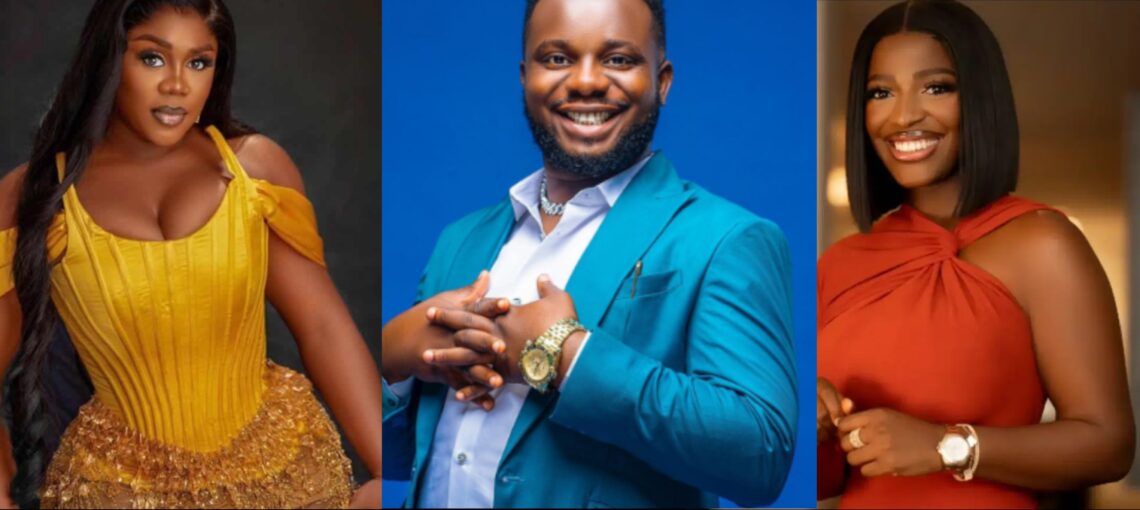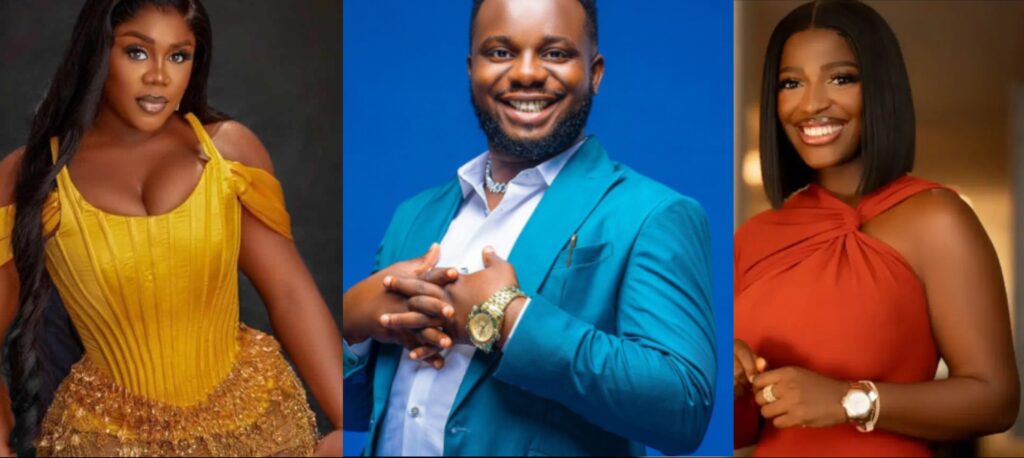
Dark Side Of Social Media Influencers: The Truth Behind The Perfect Instagram Lives

Social media influencers have become central figures in the digital age, with many people aspiring to live the glamorous, seemingly perfect lives they portray.
Influencers, especially in platforms like Instagram, showcase pictures of luxurious vacations, fashionable wardrobes, and picture-perfect moments.
However, the reality behind these curated feeds is far from as flawless as it appears.
In many ways, social media influencers have become modern-day celebrities, amassing massive followings, endorsing brands, and shaping trends.
While their impact on lifestyle and purchasing decisions cannot be underestimated, the rise of influencer culture has also brought forward its fair share of controversies, particularly in the Nigerian scene.
Influencers like Hilda Baci and Ini Dima-Okojie constantly present themselves in ways that suggest a flawless, luxury-filled lifestyle. Both influencers, well-known for their work in the entertainment and culinary industries, have millions of followers who see their life through the lens of filters, highly styled photo shoots, and well-scripted captions. However, this pressure to present an image of perfection can take a serious toll on the influencer’s mental and emotional well-being.
Despite the glossy posts, many influencers like Hilda have admitted to facing anxiety, imposter syndrome, and the pressure to always look ‘put together.’ In a world where even the smallest mistake can attract thousands of comments or negative reactions, the need to live up to unattainable standards can be overwhelming. The curated aesthetic of these Instagram lives can create unrealistic expectations for their followers, who might feel discontented with their own lives because they aren’t living up to the “perfect” standard set by the influencers.
One of the most controversial aspects of the influencer world is the glorification of luxury. Nigerian influencers like Laura Ikeji and Mercy Aigbe often share posts featuring designer clothes, expensive cars, and lavish vacations. While some of this content may be true to their real lives, there is a growing concern that many influencers are using their platforms to promote fake luxury, with some even faking sponsorships or wearing sponsored products without transparency.
In a bid to keep up with the perception of wealth, some influencers opt for rented items or use old photos to create a perception of success. This becomes a problem when these influencers target young followers, many of whom may not understand that these images are often highly curated or fabricated. The pressure to live a life of opulence can be manipulative and dangerous for their followers, who might try to emulate these lifestyles, even if it means going into debt.
While the Instagram-perfect life seems like a dream, the hidden psychological toll on influencers is significant. Many influencers are constantly comparing themselves to others and battling public criticism.
Take Chika Ike, for example. Although she presents herself as a successful actress and businesswoman, she has openly spoken about her struggles with self-esteem and the mental health challenges that come with public scrutiny. Influencers, particularly those in the Nigerian entertainment scene, often have to deal with trolling, body shaming, and unsolicited advice from followers. They may also feel pressured to keep up appearances, leading to stress and burnout.
Influencers like Adesua Etomi-Wellington and Toke Makinwa may share positive moments, but their lives also come with behind-the-scenes battles that aren’t visible to their followers. It is important to recognize that being constantly on display, dealing with trolls, and maintaining a perfect image can lead to depression, anxiety, and even eating disorders for influencers who feel the need to keep up appearances.
Influencers in the Nigerian scene are also often accused of promoting unrealistic beauty standards. With the heavy use of filters, Photoshop, and editing apps, even the most glamorous influencers like Beverly Osu and Kim Oprah can contribute to shaping beauty ideals that are unattainable for most people.
Many influencers heavily edit their photos, smoothing out imperfections, changing body shapes, and even altering their facial features to fit a certain mold of beauty. While this is done to enhance their images, it perpetuates the idea that beauty lies in perfection and that anything less than flawless should be hidden or ignored. For younger audiences, this can create a toxic mindset around body image and self-worth, often leading them to undergo dangerous procedures like plastic surgery to achieve the “ideal” look.
Many Nigerian influencers rely on brand partnerships to generate income. While this isn’t inherently bad, it does raise ethical concerns. Influencers like Toke Makinwa and Nina Ivy regularly promote beauty products, fashion brands, and services on their platforms. However, the lack of transparency surrounding these partnerships, and the promotion of products that may not actually benefit their followers, can be problematic.
Some influencers have been caught promoting products they don’t actually use or believe in, purely because they are paid to do so. This misrepresentation of products creates a false sense of trust between influencers and their followers, who may buy products based on the influencer’s endorsement, only to be disappointed by poor-quality results.
There have also been instances where influencers have promoted online courses, investment schemes, or get-rich-quick plans that end up being fraudulent. This raises the question of whether these influencers are truly endorsing products they believe in or if they are prioritizing money over the welfare of their followers.
Influencers in Nigeria, like Emmanuel Ikubese and Yemi Alade, often face pressure to stay relevant by constantly posting content, engaging with followers, and participating in viral trends. While this can be beneficial for their careers, it also comes with a significant amount of mental strain.
The continuous demand for content creation, attending events, and engaging with followers can lead to burnout. This constant pressure to be ‘on’ and live up to an image can create a sense of exhaustion and even dissatisfaction with the lifestyle they are portraying. Many influencers feel that they must maintain an active online presence to secure sponsorships and maintain their careers, leading to anxiety over every post they make.
While social media influencers, particularly in Nigeria, present an image of success, beauty, and opulence, there is a hidden reality behind the perfect Instagram lives. The pressure to maintain these curated lives comes with a host of mental health challenges, ethical dilemmas, and the creation of unrealistic expectations among followers. Understanding the dark side of influencer culture helps bring awareness to the need for more transparency, self-care, and genuine representation in the digital space. Social media is a platform that can empower and inspire, but it is equally important to acknowledge and address the struggles faced by those who constantly share their lives online.




